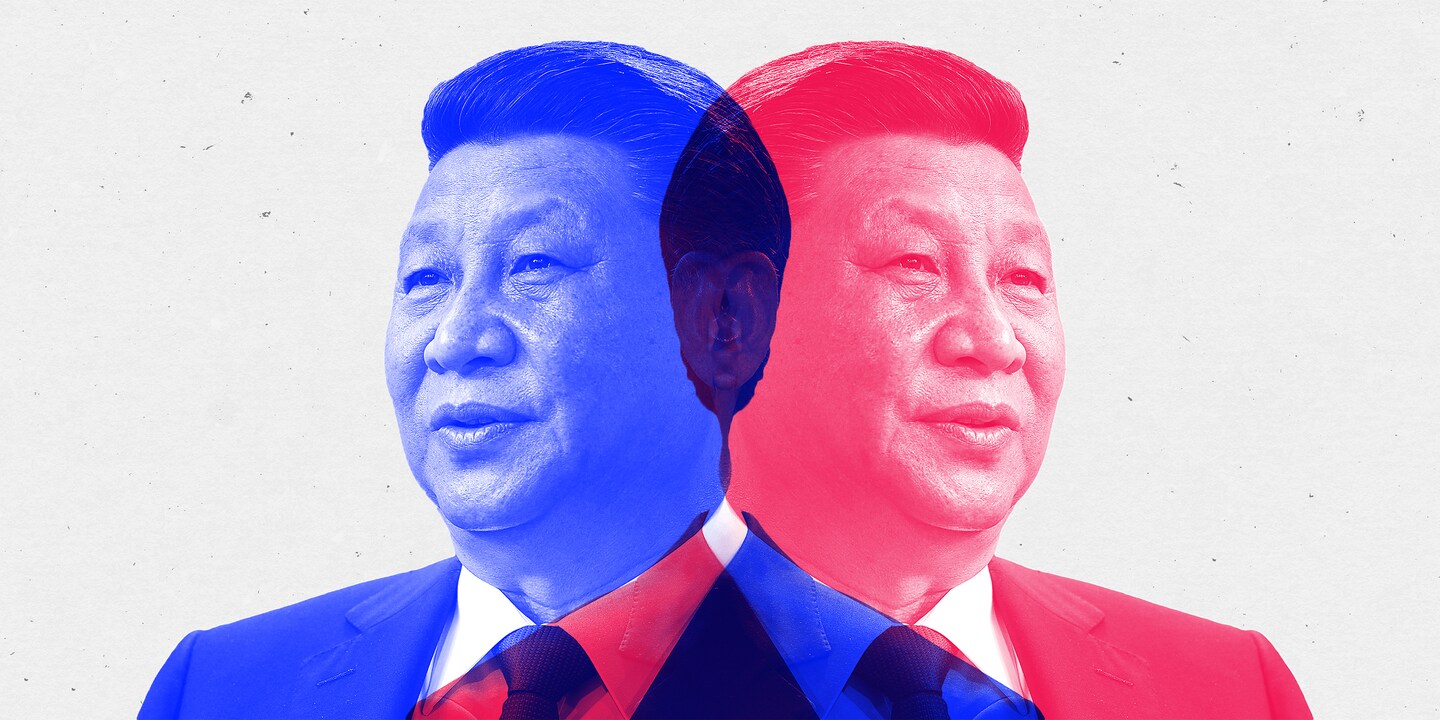What the U.S. election means for China

In the past decade, Chinese President Xi Jinping has taken his country in a more clearly repressive direction, purging political rivals, squeezing the already narrow space for civil society and tightening Beijing’s grip over its restive periphery. At international forums, Xi presents his nation as a responsible stakeholder in the world order. But at home, an emerging vanguard of influential Chinese intellectuals now dismiss liberal ideas in favor of a clearer ideology of Chinese might.
Trump and China
On the campaign trail, Trump has repeatedly insisted that he will be the tougher of the two presidential candidates on China. He links his rival, former vice president Joe Biden, to an earlier era of Western foolhardiness, where leading U.S. politicians and their counterparts in the corporate sector eagerly sought to integrate Communist China into the world economy. In the White House’s view, that phase of globalization thinned out American manufacturing and is broadly responsible for the country’s economic woes.
Trump has spent the past few years claiming to redress that imbalance. He unleashed a trade war on Beijing that saw both sides slap protectionist duties on each other’s goods. An initial deal hashed out between U.S. and Chinese negotiators in January saw some of those tariffs lifted, but has done little to calm hostilities. The substantial U.S. trade deficit with China — which Trump vowed to vastly reduce in 2016 — has hardly budged four years later.
All the while, tensions are mounting on other fronts. Trump and his allies, especially Secretary of State Mike Pompeo, ramped up the sense of an ideological clash with Beijing, casting China in speeches as the great enemy of the age, a rival power bent on “Marxist hegemony.” Both Republicans and Democrats have sought to punish China for its crackdowns in Xinjiang and Hong Kong with sanctions. With a degree of success, the Trump administration has convinced a number of European nations to keep Chinese tech giant Huawei at arm’s length.
In a recent statement, a U.S. intelligence official suggested that China may want Trump to lose the election because of the “unpredictable” nature of his governing style. But Trump has hardly persuaded Xi to change course.
“Despite pressuring Beijing with a steady drumbeat of punishing policies that have not been seen in 40 years of formal relations under either Republican or Democratic administrations, Trump in some ways has offered Xi an opportunity on the world stage and in domestic politics,” reported my colleagues Gerry Shih and Eva Dou. “Previously under pressure at home from the slowing economy and popular disillusionment with the Chinese Communist Party, Xi has been able to blame Washington’s ‘suppression’ for all of China’s travails while casting himself as a defender against foreign bullying.”
The Trump administration has “highlighted the problems we have with China,” Paul Haenle, the director of the Carnegie-Tsinghua Center for Global Policy, told the Financial Times. “They haven’t tried to solve problems. I can’t tell what their objective is. It’s more of an attitude and less a policy. It’s more of an emotion. It’s not good for U.S. national security to have that kind of policy.”
Biden and China
Biden has boasted of his significant experience meeting Xi while vice president, but his aides stress that a putative Biden administration would probably take as tough — and perhaps even tougher — a line on Beijing. That’s also a reflection of a shifting bipartisan consensus in Washington.
“I think there is a broad recognition in the Democratic Party that Trump was largely accurate in diagnosing China’s predatory practices,” Kurt Campbell, the top Asia official in the Obama State Department, told the Wall Street Journal. Biden has also said he would center questions of human rights and democratic values to an extent that Trump never has.
And in China, numerous experts see a risk in Biden supplanting Trump. “If Biden is elected, I think this could be more dangerous for China, because he will work with allies to target China, whereas Trump is destroying U.S. alliances,” Zhou Xiaoming, a former Chinese trade negotiator, told Bloomberg News in a piece that also anonymously cited four current officials who “echoed that sentiment.”
“Biden would make the hard lines more effective and more efficient,” Cheng Xiaohe, an associate professor of international relations at Renmin University in Beijing, told the New York Times. “He might resort to more sophisticated and coordinated tactics against China.”
The underlying assumption there is that a Biden White House would be less erratic than that of Trump and more capable of shoring up alliances with other Asian powers. But that’s not the unanimous view in the rest of Asia, where some diplomats have enjoyed the refreshing clarity of Trump’s animus toward Beijing and fear a return of the equivocating politics of the Obama era.
That era looks over, though, no matter who wins. “We’re on the path to increase conflict with either Biden or Trump,” Bruno Maçães, a former Portuguese politician and the author of “Belt and Road: A Chinese World Order,” among other books, told Today’s WorldView.
China’s problems are hardly restricted to whoever the occupant of the White House is. New polling by the Pew Research Center found unfavorable views of China at “historic highs” in many countries — in part due to China’s role in the coronavirus crisis, but also more broadly a reaction to Beijing’s increasingly bullying behavior in various parts of the world.
“You don’t grab the reins of global power by being nice,” said Maçães. But, he added, “China has lost lots of hearts and minds over the last few years, probably more than the U.S.”
Read more:






